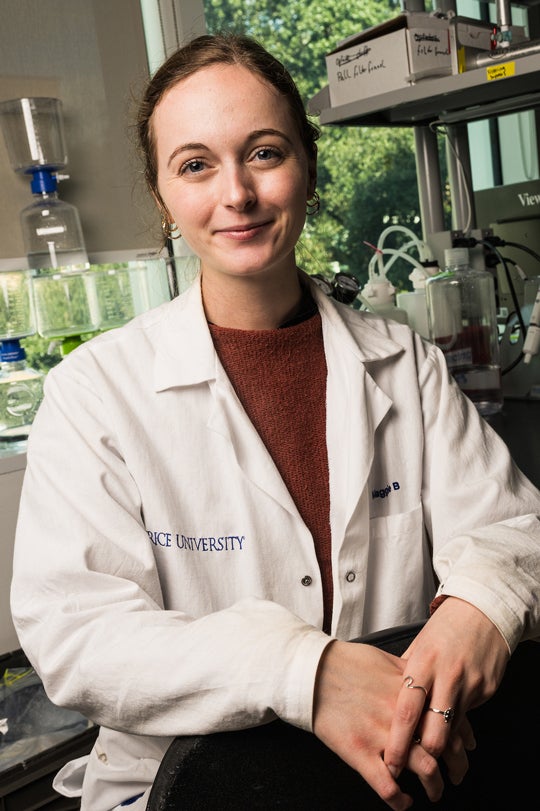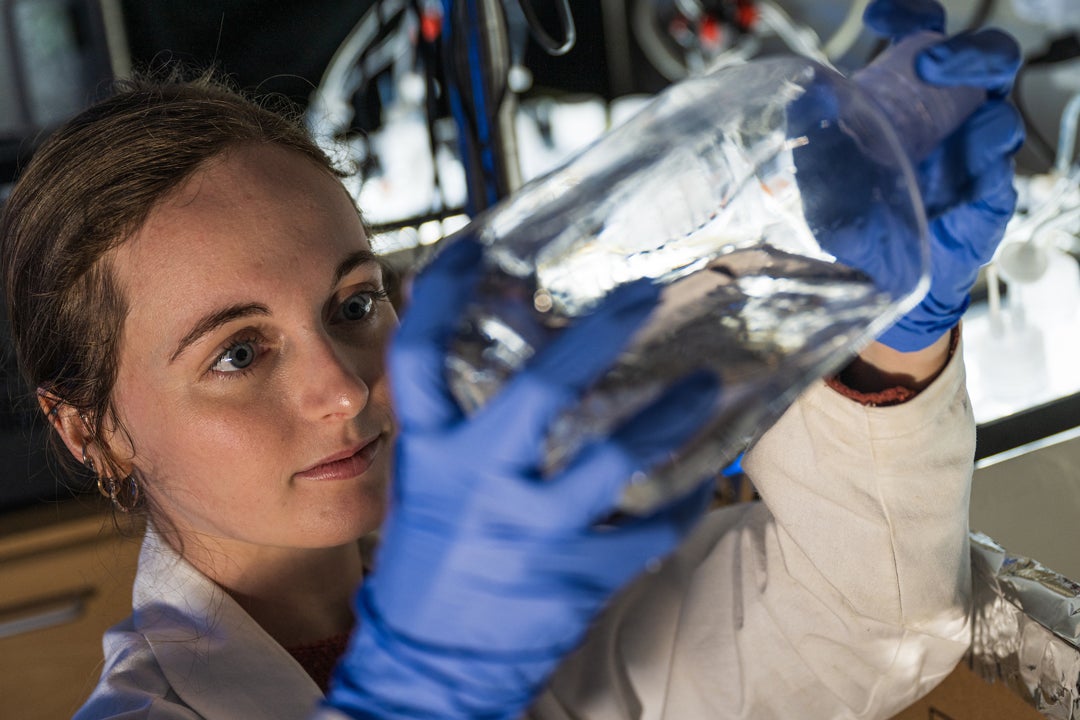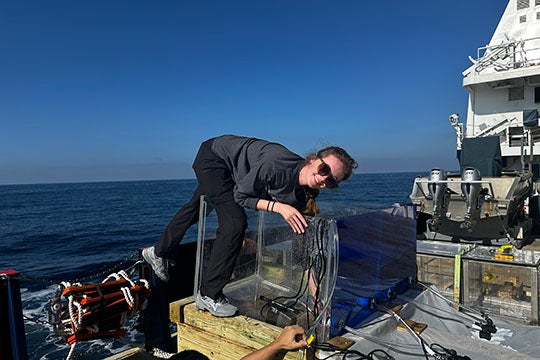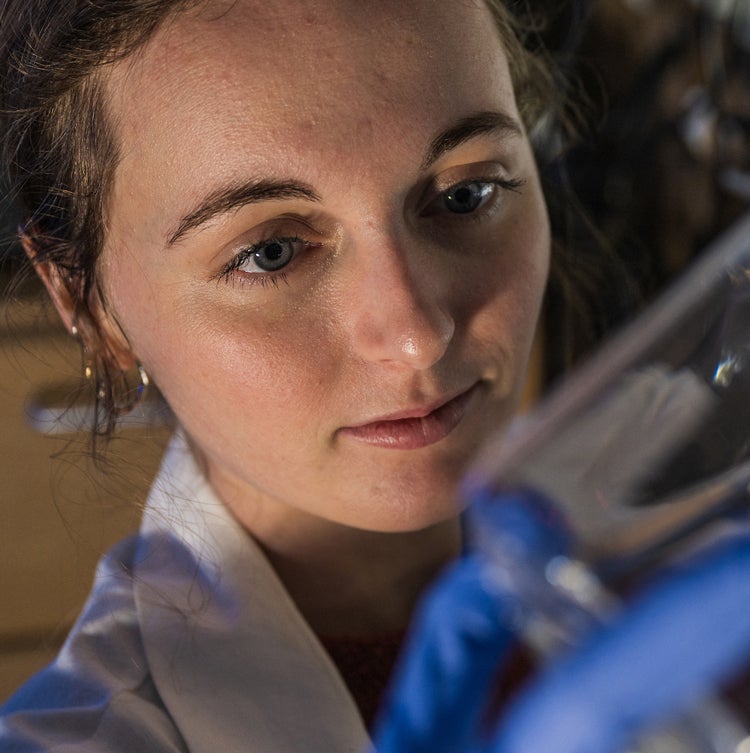
Winter in Antarctica is a time of harsh extremes — the sun doesn’t rise above the horizon for months, strong winds and blizzards are common, and water temperatures hover near freezing. Marine phytoplankton, unicellular photosynthetic microscopic algae, are trapped within the sea ice and endure even colder temperatures and hypersaline conditions. These microscopic organisms, the foundation of one of the planet’s most unique ecosystems, face incredible challenges. Maggie Baker is a graduate student studying their physiology, seeking to answer a critical question: how do these tiny organisms persist in such extreme conditions?
Maggie’s interest in extreme environments began in childhood. “I have always loved the oceans and aquatic environments,” she shared. “But the real story is a behind-the-scenes tour of the Georgia Aquarium for little, young, impressionable Maggie. The aquarium has a penguin exhibit and a little tunnel that kids can crawl in and pop up and look around like penguins. My path can all be traced back to there.” Her journey into polar science brought her to Rice, where she works with Sven Kranz, examining how phytoplankton survive in some of the harshest environments on Earth.
One thing that drew her to these icy landscapes was their critical role in carbon sequestration. “The polar oceans draw down a lot of the anthropogenic atmospheric carbon and store it in the ocean for millennia,” she explained. These regions are essential to the global carbon cycle, with the Southern Ocean around Antarctica accounting for 25 percent of marine primary productivity through the photosynthesis of phytoplankton.

“Phytoplankton are the base of the marine food web,” Maggie emphasized. “Everything starts with them. They’re the ones using light to fix carbon into a biologically available form.” In the Southern Ocean, phytoplankton fuel marine ecosystems, supporting everything from microscopic zooplankton to penguins, seals and whales. Yet, they are also the first to feel the effects of climate change, as warming oceans and increased acidification disrupt their productivity, impacting the entire food web.

Maggie’s research focuses on Antarctic sea ice algae, a subset of phytoplankton trapped within sea ice during the fall and winter. These algae endure months of darkness before being released back into the water column for the spring bloom — the Southern Ocean’s most productive event. “They have to survive over the winter without the ability to continue growth,” she said. “They maintain their base metabolic activity just enough that, when light returns, they are able to resume photosynthesis incredibly quickly. That’s an exciting adaptation of polar phytoplankton.”

In the lab, Maggie has constructed a sea ice tank to replicate these extreme conditions. She studies three types of phytoplankton, each with unique physiological traits but a shared ability to persist under low light and nutrient scarcity. “My work emphasizes and aims to explain the remarkable ability of Antarctic phytoplankton to persist and to survive,” she said.
Through future experiments, Maggie hopes to delve deeper into exploring how phytoplankton might be affected by climate change. “The Arctic Ocean has been losing sea ice at an unprecedented rate, and we’re seeing those same effects in the Western Antarctic,” she said. “What would happen if light were lost before sea ice formed? The timing shifts could impact the success of the spring bloom and, in turn, carbon sequestration and the food web.”
By studying the resilience of phytoplankton in one of Earth’s harshest environments, Maggie’s work highlights the interconnection between polar ecosystems and our planet’s climate. Her research not only sheds light on how organisms might respond to a warming world but also underscores their critical role in sustaining life on Earth.

